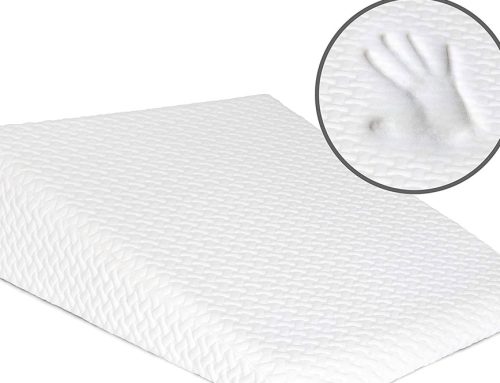Neck pain is a common issue that affects millions of people worldwide. It can be caused by various factors such as poor posture, muscle strains, and rheumatology problems. Memory foam pillows have gained popularity as an effective solution for neck pain relief and improving sleep quality.
Understanding Neck Pain and Rheumatology Problems
Neck pain can arise from several causes, including muscle strains, poor posture, and underlying rheumatology problems. Rheumatology refers to the study and treatment of conditions that affect the joints, muscles, and bones. Some common rheumatology problems that cause neck pain are:
- Osteoarthritis
- Rheumatoid arthritis
- Fibromyalgia
- Ankylosing spondylitis
These conditions can cause inflammation, stiffness, and chronic pain in the neck, impacting an individual’s quality of life. To manage neck pain effectively, it is essential to identify the root cause and find a suitable solution.
Memory Foam Pillows: The Perfect Sleep Companion
Memory foam pillows have become increasingly popular as they provide multiple benefits for people suffering from neck pain and rheumatology problems. Memory foam is a viscoelastic material that conforms to the shape of your head and neck, providing personalized support and comfort. Here are some of the advantages of using memory foam pillows:
- Proper spinal alignment: Memory foam pillows help maintain the natural curve of the neck and spine, reducing stress on the muscles and joints.
- Pressure point relief: The contouring effect of memory foam allows it to distribute weight evenly, minimizing pressure on sensitive areas.
- Reduced muscle tension: By cradling the neck and head, memory foam pillows minimize muscle strain, promoting relaxation and better sleep.
- Hypoallergenic properties: Memory foam is resistant to dust mites and allergens, making it an ideal choice for individuals with allergies.
Choosing the Right Memory Foam Pillow
Not all memory foam pillows are created equal, and selecting the best one for your needs is crucial for optimal results. Here are some factors to consider when choosing a memory foam pillow:
Size, shape, and firmness: Choose a pillow that suits your preferred sleeping position and provides adequate support to your neck and head.
Memory foam pillows come in various shapes, including contoured, traditional, and cervical roll designs. People with rheumatology problems may find contoured and cervical roll pillows particularly beneficial due to their targeted support.
Density: Opt for a pillow with a higher density for increased durability and support.
Density is measured in pounds per cubic foot (PCF), and higher-density memory foam pillows typically provide better support and last longer.
Cover material: Select a pillow with a breathable, hypoallergenic cover for added comfort and hygiene.
Covers made of materials like bamboo or organic cotton offer excellent breathability and are gentle on sensitive skin.
Final Thoughts
Memory foam pillows can be a valuable tool in managing neck pain and rheumatology problems. By providing targeted support, proper spinal alignment, and pressure point relief, memory foam pillows promote a better night’s sleep and improved overall well-being. It is essential to select the right pillow based on your individual needs and preferences for optimal results.













